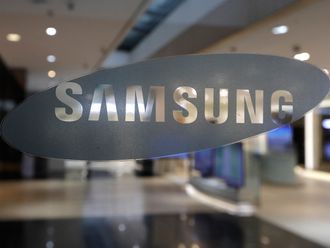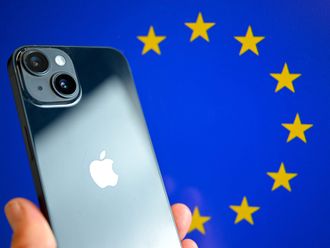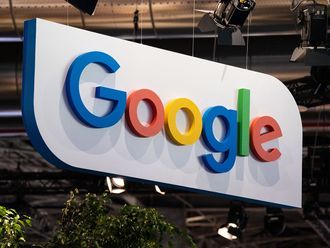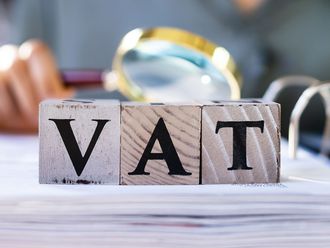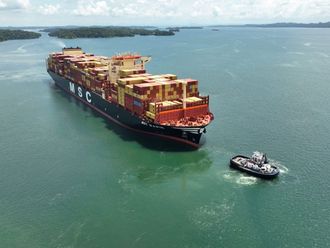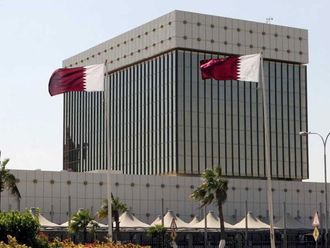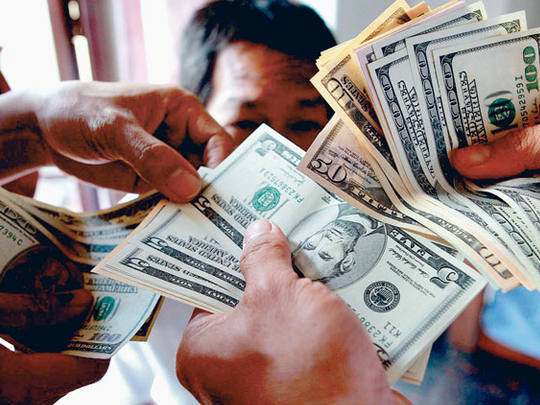
When elephants fight, it is the grass that suffers. This bit of wisdom, believed to have originated with the Kikuyu tribe of Kenya hundreds of years ago, holds good even today.
As the massive economies of the United States and China face off over what the US deems is an artificially subdued yuan, and other economic giants such as Japan enter the fray with their own versions of currency intervention, the smaller economies look set to bend under the weight of the battle.
For trade-dependent nations such as the UAE, however, the global currency war appears to be fought with a blade sharpened on both edges.
On the one hand, there is the real fear of imported inflation as goods from nations with strengthening currencies — such as Europe — become more expensive. On the other, the mass printing of new money that nations are using as a means of keeping their currency values low can result in increased investment flows to the Gulf.
"Currency wars are a reflection of more uncertain economic times," said Standard Chartered bank's chief economist Gerard Lyons. "The criticism is that more countries are using their currencies as an active policy tool. The tale of two worlds between a resilient East and a fragile West adds to this. How the currency war evolves will have a huge bearing on the global economic recovery," he said.
The large economies of the Group of Seven — the US, the UK, Japan, France, Germany, Italy and Canada — are aggressively using currency-related means, including quantitative easing and market intervention, as a means of controlling capital inflows and avoiding destabilising appreciations of local currencies or asset prices.
"Increased currency interventions aren't protectionism," Mark McFarland, emerging markets economist at Emirates NBD, told Gulf News.
"They alarm the emerging markets because the implications of ultra-loose monetary policy in G7 nations, the US in particular, will reduce fixed income and money market returns while increasing the quantity of funds for investment."
Capital inflow
The latter may not be such a bad thing. "Gulf countries have much to gain from ultra-loose monetary policy in the G7 as it will push down the cost of capital and probably lead to increased capital inflows," McFarland said.
"We are already seeing this in the decline in credit default swaps [CDS, the cost of insuring debt], fixed income yields and money market rates. The Gulf would be hurt by punitive tariffs being imposed on China as this would hinder global trade, on which the UAE is dependent [because of its strong presence in] the logistics business," he said.
"Quantitative easing should be positive, particularly in terms of investment flows. Capital flows into the local markets of the Middle East appear to be picking up. In the UAE, in particular, foreign flows into local markets have been evident in an [oversubscription] to the recent Dubai Government bond issue and in the decline of Dubai's CDS price to below 400.
"It's also appearing in the interbank market with three-month Eibor now trading at 2.20 per cent," McFarland said.
For the Gulf region, US quantitative easing means a weaker dollar and hence weaker GCC currencies, which are pegged to the dollar. However, a weaker dollar also implies larger gains on export of commodities such as oil.
The dollar has come under repeated attacks over the past six months, hitting a 15-year low against the yen. At the same time, the Australian dollar has neared a 27-year peak and the Swiss franc has hit a record high against the greenback.
A question on most lips is: Why are other countries more concerned about a weakening dollar than the US itself?
"In fact considering its current account deficit, a falling dollar is good for the US economy. A weak dollar makes imports costlier for American consumers. Economic pundits feel that letting the dollar slide is a good way to shrink America's trade deficit at global cost," said Pradeep Unni, vice-president at Richcomm Global Services.
Protectionism
Finance ministers participating in last weekend's International Monetary Fund gathering in Washington were able to do little besides delivering weak rhetoric against a "global currency war".
Robert Zoellick, president of the World Bank, said intervention was "symptomatic of currency tensions" and that it was "undesirable for these tensions to spur protectionism".
Fumihiko Igarashi, Jap-an's vice-finance minister, declared: "It's not our intention to engage in a currency devaluation race for the sake of the national interest, but smoothing operations when movements are volatile are permissible."
US Treasury Secretary Tim Geithner said the IMF should do more to encourage countries with large fiscal surpluses to change their policies, suggesting countries such as Japan do more to stimulate domestic demand.
Everyone who is anyone is pointing one finger at each other while another rests firmly on the monetary button. Most G7 nations have set their benchmark rates at all-time lows — close to zero — as they attempt to kick-start demand for domestic assets.
The dollar's battering has the potential to increase inflationary pressures in the UAE and the Gulf, but some analysts are not so sure this will happen. "For the region, US quantitative easing means a weaker dollar and hence weaker GCC currencies.
"This obviously translates into upward pressures on imported goods from non-dollar zones," said Philippe Dauba-Pantanacce, senior economist for the Middle East and North Africa at Standard Chartered bank. "The strengthening of the yen could have a substantial impact on GCC importers of Japanese goods — notably the car industry — if they have not adopted extensive hedging strategies. It translates into higher costs of non-dollar imported goods," he said.
Imported inflation
Does that mean higher prices for non-dollar goods imported and sold in the UAE?
"Imported inflation is a direct consequence, but it is important to put things in perspective," Dauba-Pantanacce said.
"Contrary to the 2007/2008 context, domestic inflationary pressures are extremely low if not negative in some sectors. As a result, we should not see exaggerated pressures on the headline inflation figure in the region."
McFarland added: "With economic recovery in the UAE still very much in its early stages, it's unlikely that higher prices can be passed through to consumers. It's more likely that retailing margins will have to absorb most of the increase in import prices."
For the UAE, he said, the major point "isn't so much maintenance of the peg as making sure that free trade agreements are maintained".
Conservative view
And are the worries about a continuously weakening dollar justifiable in the long run?
Simon Williams, chief economist ay HSBC Middle East, begs to take a more conservative view.
"We see threats to the dollar, but despite all the rhetoric we do not expect to see a pronounced decline in its value," he said.
"Don't forget, it's only a few weeks since the market was sure the euro was about to slump; now its anxieties are focused on the dollar.
"We think that [the market's] worries are likely to circle away from the US currency once again, and give us an end-year euro-dollar rate close to the one we have now," Williams said. As if to bolster this view, the dollar held steady against the yen and moved higher against most other currencies for a second straight day on Tuesday as investors took profits.
The threat of a second round of quantitative easing by the US remains high, however, and until that is discounted by markets, the dollar will continue to take a hammering.


